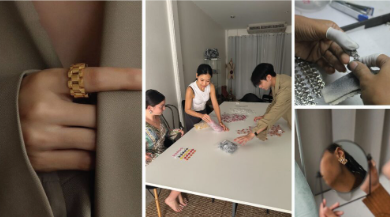
Quality Assurance
– Inspection of Materials: Before a piece of jewellery is crafted, the materials—such as metals (silver, gold, platinum) and gemstones (diamonds, sapphires)—are inspected to ensure they are of high quality and free from defects.
– Craftsmanship Standards: During production, the jewellery is carefully crafted according to strict guidelines, ensuring that every aspect, from setting stones to finishing touches, meets professional standards. Artisans follow protocols to maintain durability, shine, and precision in the design.
– Final Inspection: After the piece is completed, it undergoes a thorough final quality check. This includes checking for imperfections, verifying that all customizations (like engraving or size) are correct, and confirming that the product is exactly as described.
– Testing for Durability: In some cases, pieces may be tested for durability to ensure they can withstand daily wear and tear, particularly for engagement rings, bracelets, or other frequently worn jewellery.
Certification
– Gemstone Certification: If the jewellery includes precious gemstones, such as diamonds, rubies, or emeralds, certification is provided by reputable Gemological institutions (e.g., GIA, IGI). These certificates verify the authenticity, quality, and grading of the gemstone, including details about its cut, colour, clarity, and carat weight.
– Metal Purity Certification: Jewellery made from precious metals like gold, silver, or platinum often comes with a hallmark or stamp indicating the purity of the metal (e.g., 925 for sterling silver, 18K for gold). This assures customers that the metal content is as advertised.
– Ethical Sourcing Certification: Many companies now offer certifications that verify the ethical sourcing of materials. This ensures that the diamonds or metals used are conflict-free and sustainably sourced, aligning with responsible and fair-trade practices.

